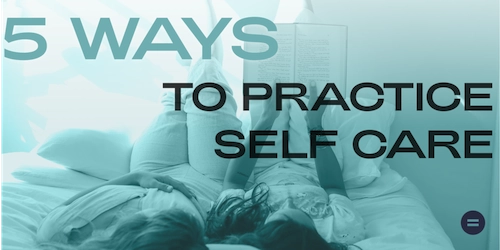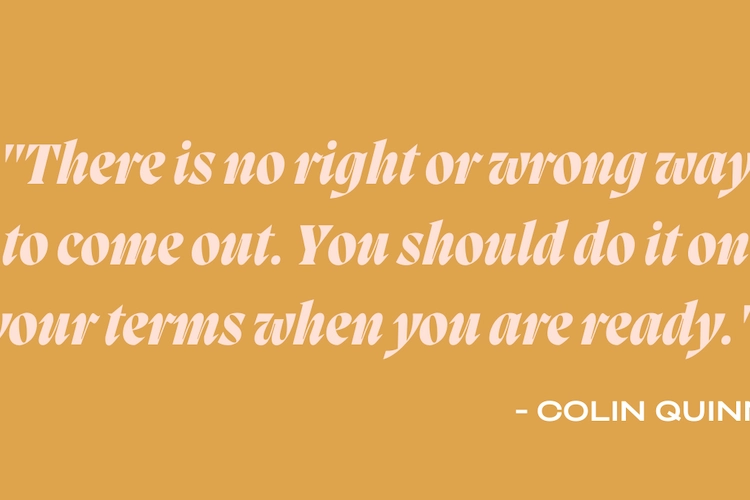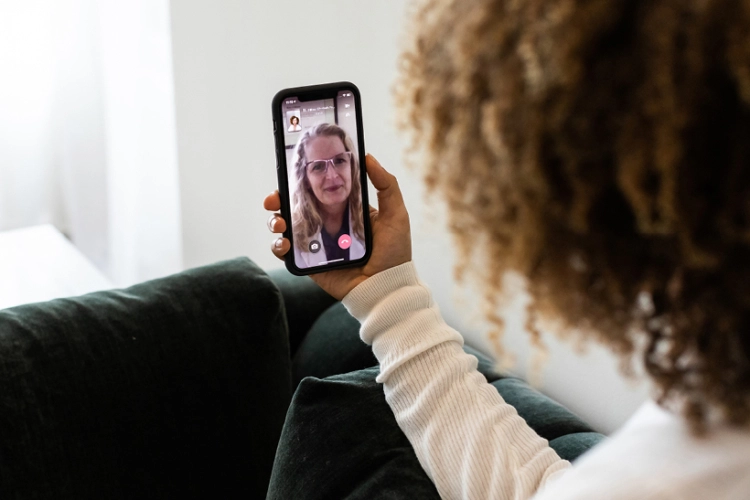As LGBTQ+ people, the discrimination we face in our daily lives and against our community (i.e., anti-LGBTQ+ legislation like Arkansas’s House Bill 1570) affects our psychological well-being. Tending to our mental health is particularly pertinent for those of us riding out the COVID-19 pandemic in unsupportive or isolated environments where we might lack access to identity-based resources. Even though the LGBTQ+ community faces more adversities than the general population—especially mental health conditions and illnesses—we strive to celebrate all identities and take care of one another.
In difficult times, we rely on our communities to remind us that many of the challenges we face, we take on together. Below are our recommendations for how self care (nurturing your well-being) and community care (supporting the people around you) can rejuvenate and support ourselves and others.
1. Allow yourself to feel whatever it is you’re feeling
Let yourself feel as negative as you need to feel while reminding yourself that these negative emotions aren’t permanent, When you process your feelings, you learn how to handle difficult emotions, make better decisions, and form deeper connections with others. Toxic positivity, or suppressing your emotions in favor of being positive, can lead to more stress, according to a 2011 study from the University of Texas at Austin. In order to heal, we have to sit with and confront our emotions and feelings.
One grounding technique you can use in these moments is picking a color and naming everything in your environment with that color; this is useful because it provides a neutral, non-judgmental way to connect back to the present moment, rather than worrying about the past or future.
2. Use social media to find community but remember to take breaks from being online
Before she started using Twitter, Ace, a disabled trans person, felt a lack of community. “For those with ADHD or other neurodivergence, a lot of us have felt that we were lazy or just not good enough until we realized others experienced the same things,” they say. “This is also how I’ve felt about being trans and queer. Being able to call someone I first met online ‘family’ is one of the best experiences I’ve ever had.”
Facebook, Discord, as well as Twitter, are home to groups like Transgender World, Everyone is Gay, Black Lesbians, and LGBTQ+ Hangout that exist specifically for creating community with other queer and trans people. It’s true that social media can help us find community but it’s also important to log off and set boundaries around screen time. Doomscrolling, or constantly being online to keep up with the news and the world, can amplify pre-existing anxiety or depression. But carving out time for a new, offline hobby is one way to avoid it. “It is good to stay informed, but you cannot make the world a better place if you are too depressed to function,” Ace says.
3. Find help from a professional
Connecting with someone who understands your specific identity within the LGBTQ+ community can do wonders for your mental health, whether you’re in a crisis or simply trying to figure life out. “There are a lot of great people that can support you [to] live your best life, heal wounds, overcome atrocities, and get you into alignment,” Dr. Zelaika Hepworth Clarke, a sexologist who specializes in human sexualities, gender and relational diversity, says. “The unfortunate fact is that heterosexism and homophobia have been ingrained into facts and mental health systems. But don’t give up if you find someone that you’re not really vibing with. It’s helpful just to have someone that supports you.”
4. Community and affirmations as medicine
Keah Brown, a Black bisexual author, explains that adding daily affirmations to her life over the last several years has radically changed her life. “I am a big believer in daily affirmations. They have allowed me to appreciate who I am becoming even on bad days,” she says, adding, “What I normally do is I say four things that I like about myself in the mirror during the morning hours or the night hours, sometimes both. It allows me to sit in my body in ways that I never could before. In saying these affirmations, I give myself validation, which has made me a better person to myself, to my friends, to my family and the other people who love me.”
Dr. Clarke acknowledges that not everyone has the opportunity to express themselves safely, which is why they suggest practicing consistent self-compassion. Reciting affirmations like “I am loved,” “I am worthy,” and “I am beautiful” can reinstate your sense of self-value and counteract negative thoughts. “Part of my healing is queerness as a medicine,” says Dr. Clarke. “So when I need to get out of oppressive spaces, I find it refreshing to be around individuals where you can be authentic.”
5. Heal by helping others heal
Self care is all about nurturing your well-being, while community care focuses on fostering camaraderie and supporting the people around you who share your identities and values. The more we take care of each other, the better we can support both our individual and collective well-being. If you have the ability to do so, take a moment to connect with your friends and community as a supportive listener; a simple ‘thinking of you’ message is a great way to reach out.
Dr. Clarke believes that helping others starts with listening. “Sometimes we don’t want advice. We just need to vent, and I find that listening is very powerful,” they say. It doesn’t even necessarily have to be listening in person—it can be over text, letter, phone, or social media.
At Included Health, we strive to provide friendly and exceptional healthcare navigation services to the LGBTQ+ community. Become a member today to receive more health and wellbeing updates from our care team. And please do not hesitate to contact us to #GetIncluded for your company, health plan, and community.
About the author
Editorial Team
Our Editorial Team is composed of our leaders, clinicians, and care coordinators, as well as other Included Health employees, all who are working to raise the standard of healthcare for everyone. Together, they combine decades of subject matter experience across all fields of healthcare.



